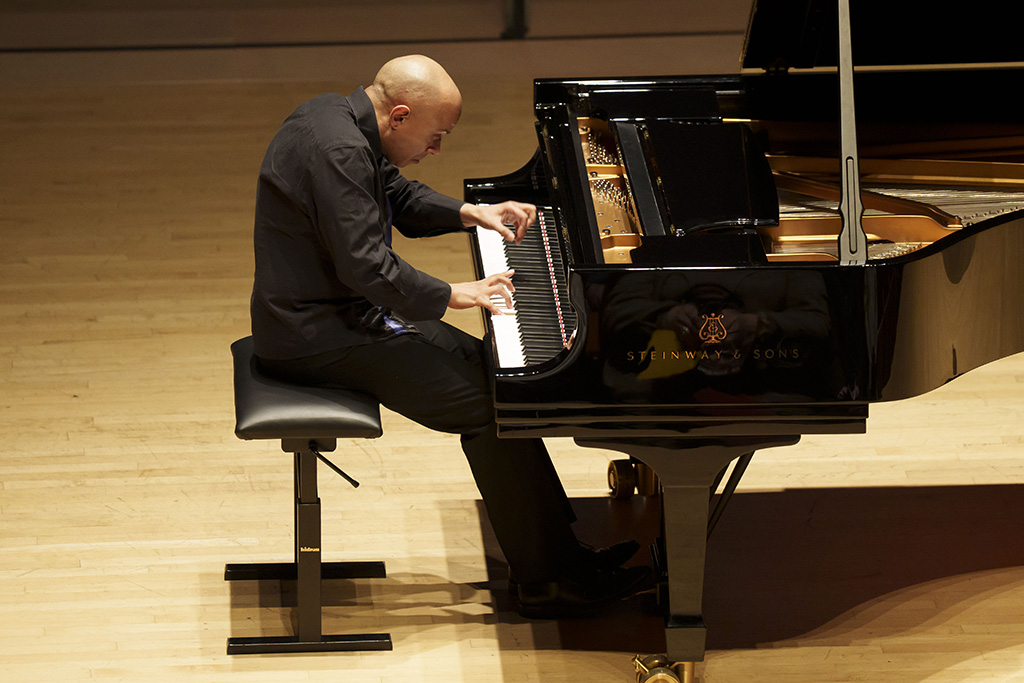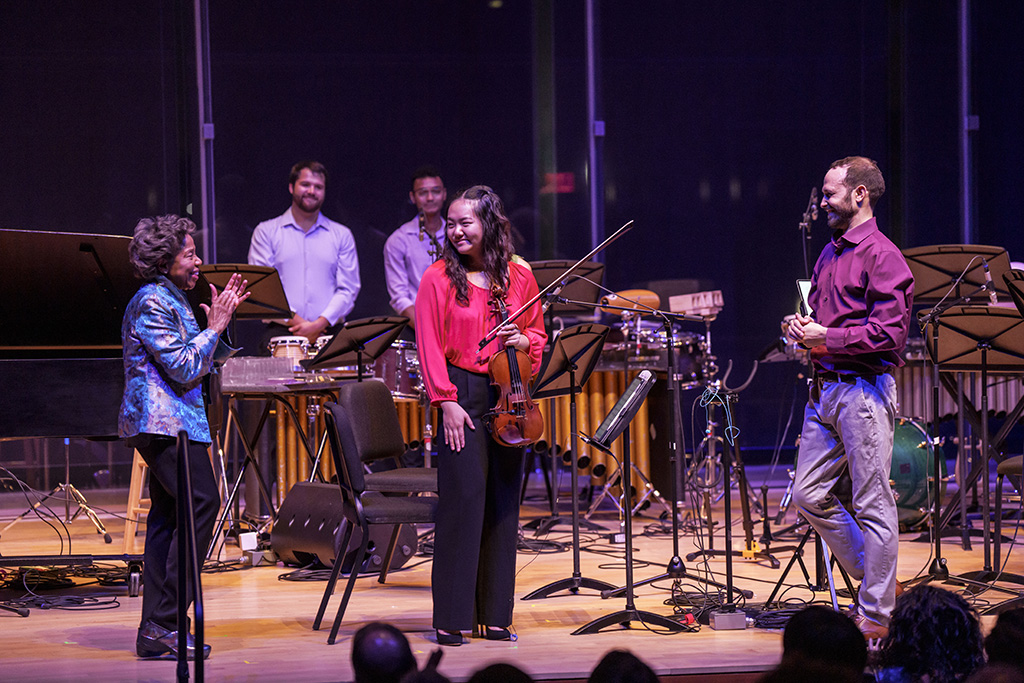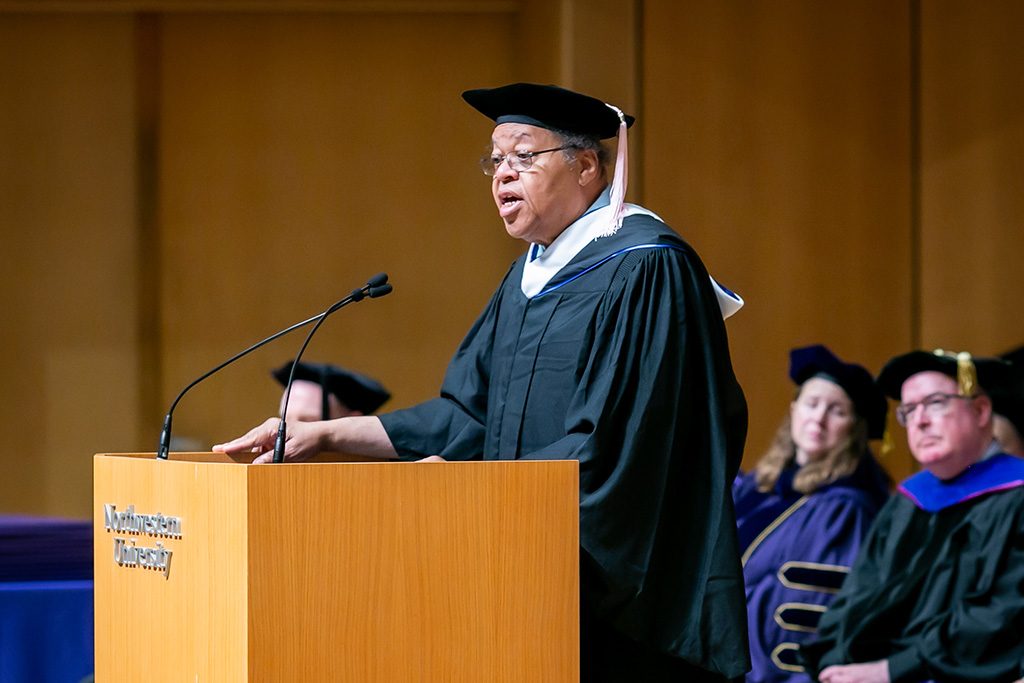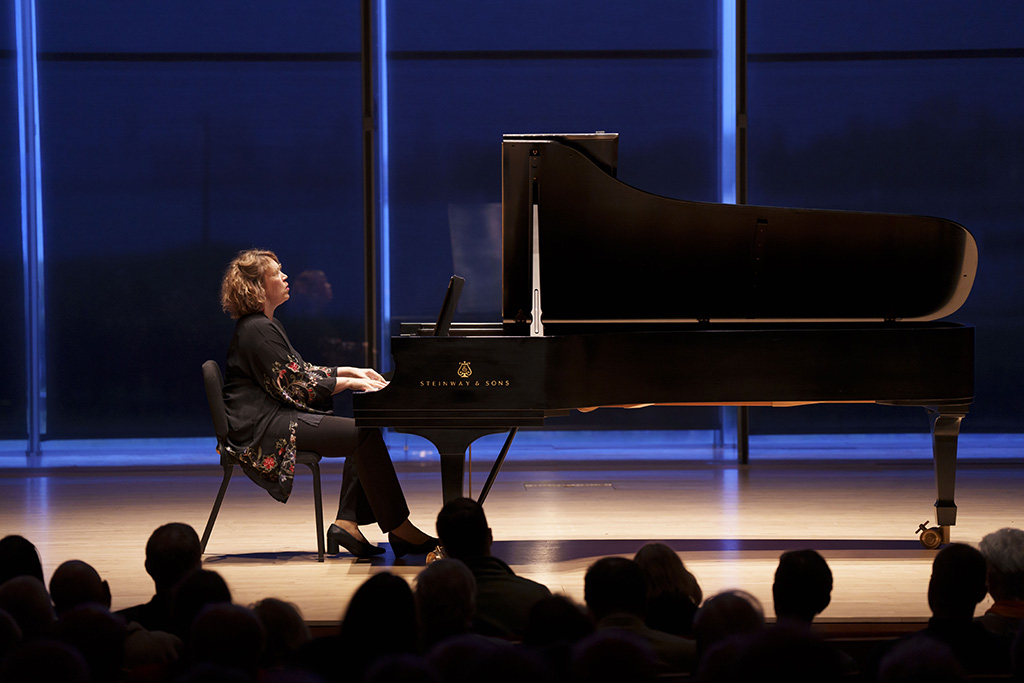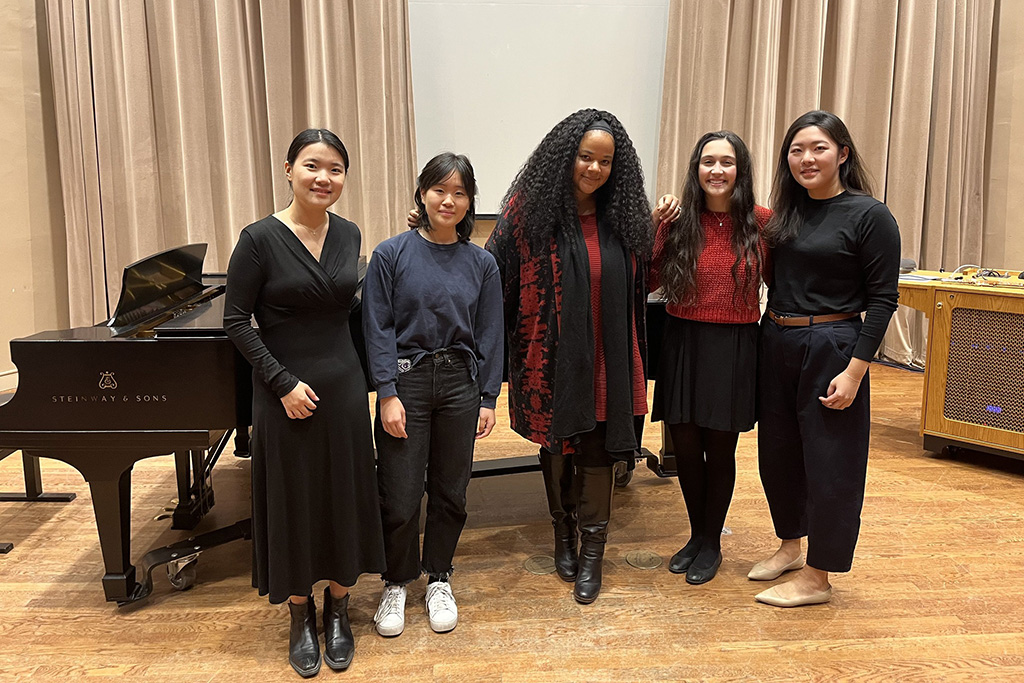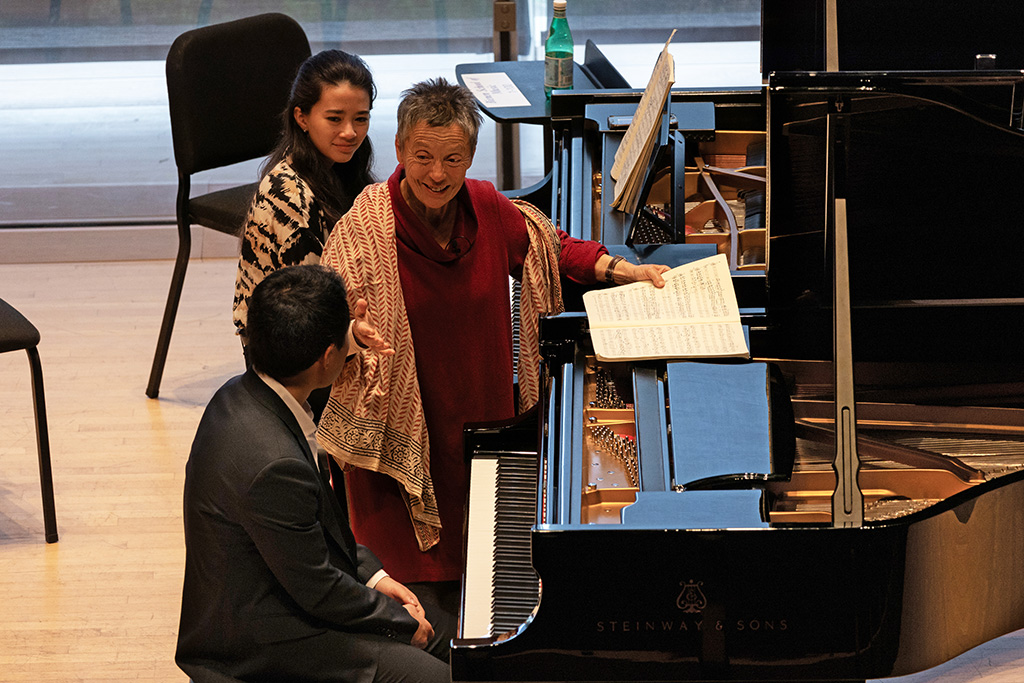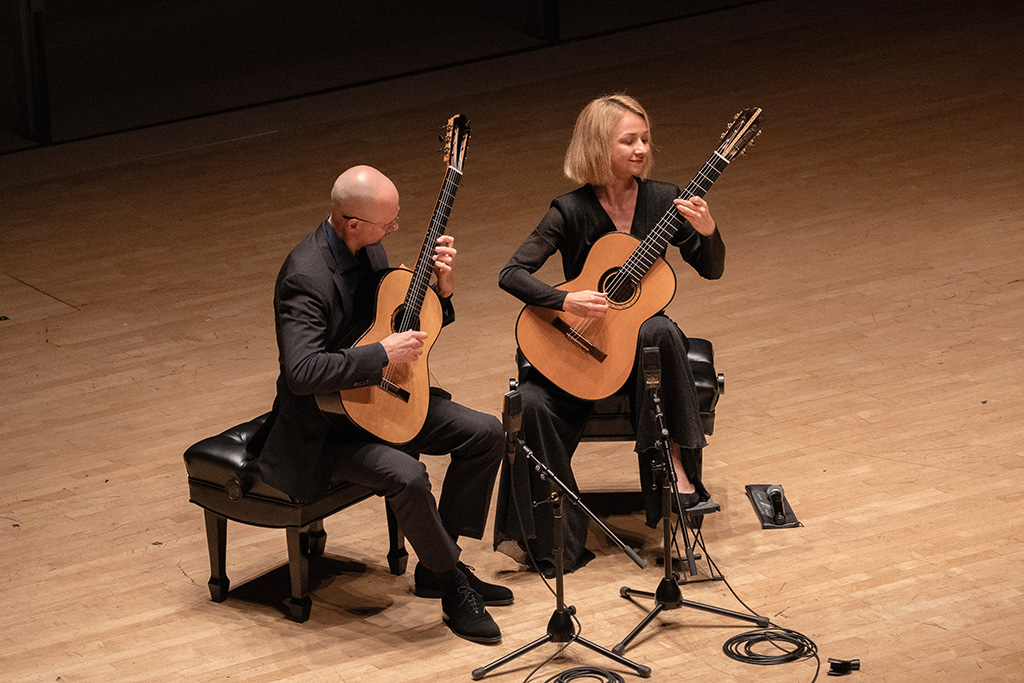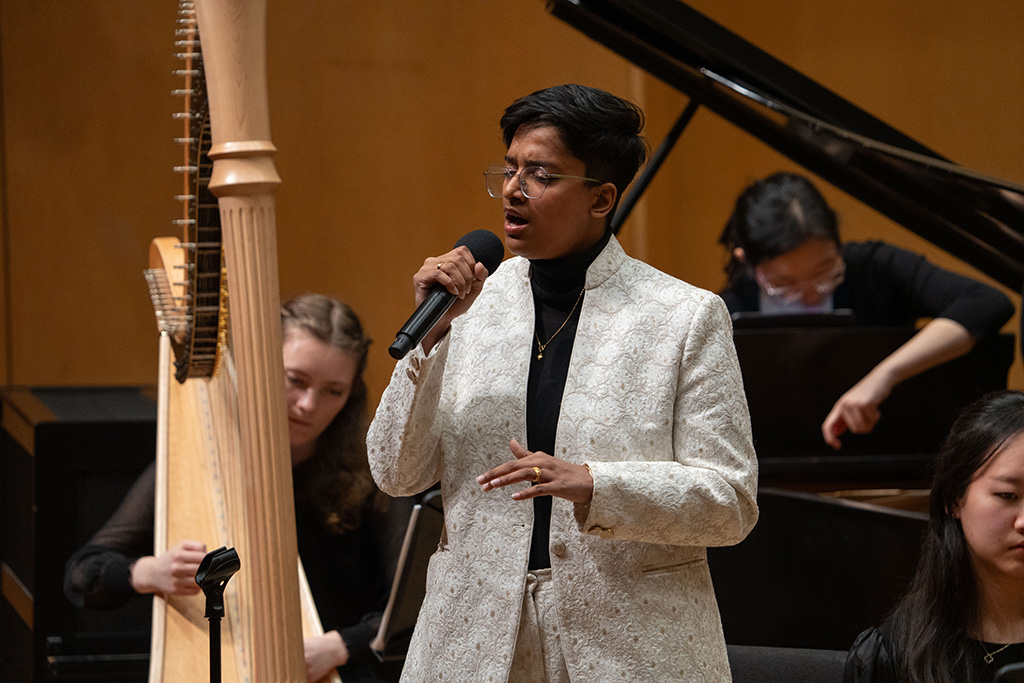American Art Song
This graduate seminar will survey and conduct new research into American art song traditions, including African American song, with special focus on poetic language and issues of performance. It will query intersections between classical art song and popular cultures and religious practices, and attempt to define elements that differentiate American song from other traditions in English. A core repertoire of songs by Charles Tomlinson Griffes, William Grant Still, Charles Ives, Amy Beach, Samuel Barber, Florence Price, Margaret Bonds, and Ned Rorem will be balanced by attention to lesser known material.
Julius Eastman, Composer Topics
This course introduces students to the life and work of composer-performer-improvisor Julius Eastman (1940-1990). Eastman's musical practices encompassed a range of styles and genres—classical music, experimentalism, disco, punk, and jazz—and was grounded in the Black radical tradition. The course explores not only Eastman's radical Black aesthetics but explores its intersection with his militant homosexual sensibility. The course will explore his collaborations and confrontations with a range of artists.
Music Theory and Aural Skills
The sophomore Music Theory and Aural Skills curricula continue to diversify with a new segment featuring analysis of form in popular music. Some of the composers and artists studied in the sequence include Laurie Anderson, Agustín Barrios, Beyoncé, Lili Boulanger, Teresa Carreño, Ana Carrique, Ray Charles, Chen Yi, John Coltrane, Louise Farrenc, H.E.R., Augusta Holmès, Janelle Monáe, The Penguins, Florence Price, Silvestre Revueltas, Chevalier de Saint-Georges, Clara Schumann, Ruth Crawford Seeger, Sia, Amii Stewart, and Thomas Wiggins.
Musical Legacies of Black Feminism, Topics in 20th Century Music
This course investigates musical performance, composition, and improvisation as Black Feminist praxis in the US from the early 20th century to the present. Through close listening to musical documents by significant Black women artists and close reading to related texts by foundational Black Feminist thinkers, students will gain an understanding of the role of sound and performance in the work of social critique and the Black Radical Tradition.
Methods of Music Theory seminar
This required course for PhD students has a dedicated session to race and gender, which includes important writings by Philip Ewell, Associate Professor at Hunter College, City University of New York.
Opera and Race
The course is designed to provide an overview of a range of issues involving the dramatic and musical representation of race on the operatic stage. Topics include works by European composers depicting non-European characters (Aida, Otello, Madama Butterfly, Turandot), the influence of colonialism as evidenced in Délibes' Lakmé, stereotypes of musical style, the vexed problems surrounding performance practice (such as casting and the tradition of applying makeup to singers in order to darken their appearance), American operas involving racial themes by both Black and white composers, and the complex inter-relations between race and sexuality in many operas both within and outside the standard repertoire.
Women Rock
This course considers the roles of women in rock music from the inception of the genre through today, framed by changing social expectations for women and increasing acceptance of diversity among performers, audiences, and consumers. It grounds the genre in pathbreaking performances by women of color whose popularity in the 1950s and '60s is too often overlooked, and also considers non-binary and transgender performers and performance.


